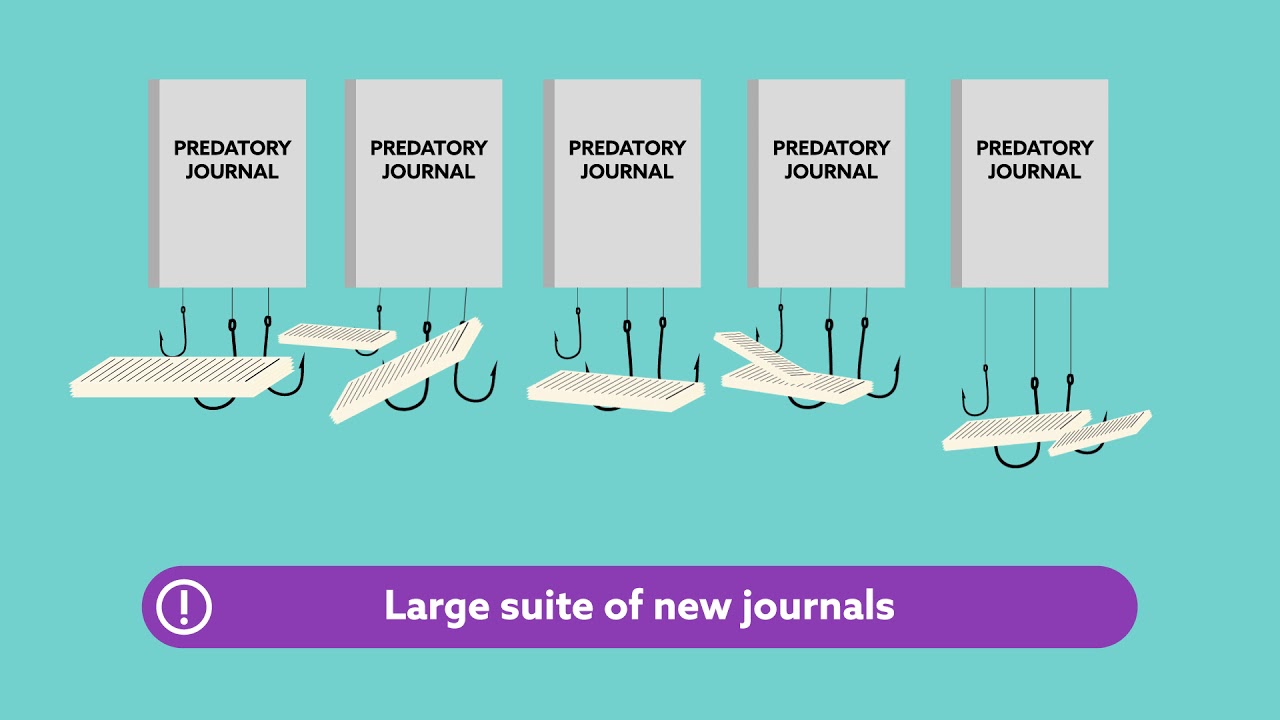Identifying Characteristics Of A Reputable Open Access Journal
With the obvious advantages of publishing under an open access approach, such as increased distribution and exposure, it's no surprise that a rising number of researchers are looking to publish their work in open access journals.
Author:Suleman ShahReviewer:Han JuDec 21, 202227 Shares1.1K Views

For researchers, the subject of how to find the finest open access publications is extremely significant and relevant. With the obvious advantages of publishing under an open access approach, such as increased distribution and exposure, it's no surprise that a rising number of researchers are looking to publish their work in open access journals.
Some essential criteria of renowned open access journals have been discovered and may be utilized before article submission to assist you to navigate the world of open access publishing and pick the proper open access journalfor you. It's always a good idea to conduct your research and compare journals to ensure that you're sending your valuable paper to a respectable publication.
Reputable Journals Meaning
A credible publisher/journal will provide a simple submission process, transparent fees, thorough peer review, and high production values. They will also aid in the accessibility of your outputs by including them into bibliographic databases.
Characteristics Of Reputable Journals

8 ways to identify a questionable open access journal
- The journal is included in Directory of Open Access Journals
- At least one of the main indexing and abstracting services, such as Thomson Reuters' services, PubMed, MedLine, and INSPEC, will index any quality journal.
- The journal produces regular issues that contain a good number of papers.
- The journal has a chief editor and a somewhat large editorial board.
- A good journal's editing process is well-documented, and its editorial scope is well-defined and appropriate.
- A good journal's publication ethics statement will detail ethically unacceptable behavior, such as plagiarism, image, and data manipulation, and describe authorship criteria, rules relating to ethical approval of the use of animals or humans in research, and instructions for registering clinical trials. Some journals additionally contain links to the guidelines of the Committee on Publication Ethics (COPE).
- A sophisticated website with a clear design and easy navigation, an online submission system, search engine functionality, a dedicated page for each paper/abstract, journal and article-level statistics (downloads, citations, Altmetric score, etc.), suggested articles, and email subscriptions are all features that reasonably good journals provide.
- To discover how well the journal ranks, conduct a simple Google search. If it ranks highly, it suggests the journal has mastered Search Engine Optimization (SEO), and, more crucially, your research article has a strong probability of ranking well in search engines after it is published.
Characteristics Of Predatory Journals
Open-access journals that publish articles online with no or little peer review, poor academic standards, and limited credibility are known as predatory journals. They operate to publish scientific journal articles for writers who need to add publications to their resumes. Beall's Predatory Journals & Publishers and List of Predatory Publishers present a list of potentially predatory journals and publishers. Following are some common characteristics of predatory journals and publishers.
- Non-biomedical, as well as biomedical issues, are included in the area of interest.
- The webpage has grammatical and spelling problems.
- Images that are distorted/fuzzy, or that are designed to appear like something they aren't, or that are used without permission.
- The wording on the webpage is aimed at authors.
- The website promotes the Copernicus Index Value.
- There is no description of the manuscript processing procedure.
- Manuscripts should be emailed to the address below.
- The promise of rapid publishing is made.
- There is no policy for retractions.
- There is no information on if and how journal material will be kept digitally.
- The processing/publication fee for articles is quite modest (e.g., $150).
- Journals that purport to be open access either retain or fail to indicate the copyright of published research.
- The contact email address (e.g., @gmail.com or @yahoo.com) is not professional or affiliated with a journal.
Open access proponents argue that by utilising cutting-edge information and communication technologies, open access considerably enhances the transmission and dissemination of scienceand research on a worldwide scale. Researchers from all over the world, professors and students, physicians and medical staff, and society in general, benefit from the quick and widespread availability of papers. Some opponents have questioned the conduct of some open access publishers, claiming that their business interests appear to outweigh their genuine desire to advance the open access cause and promote high-quality research.

Suleman Shah
Author
Suleman Shah is a researcher and freelance writer. As a researcher, he has worked with MNS University of Agriculture, Multan (Pakistan) and Texas A & M University (USA). He regularly writes science articles and blogs for science news website immersse.com and open access publishers OA Publishing London and Scientific Times. He loves to keep himself updated on scientific developments and convert these developments into everyday language to update the readers about the developments in the scientific era. His primary research focus is Plant sciences, and he contributed to this field by publishing his research in scientific journals and presenting his work at many Conferences.
Shah graduated from the University of Agriculture Faisalabad (Pakistan) and started his professional carrier with Jaffer Agro Services and later with the Agriculture Department of the Government of Pakistan. His research interest compelled and attracted him to proceed with his carrier in Plant sciences research. So, he started his Ph.D. in Soil Science at MNS University of Agriculture Multan (Pakistan). Later, he started working as a visiting scholar with Texas A&M University (USA).
Shah’s experience with big Open Excess publishers like Springers, Frontiers, MDPI, etc., testified to his belief in Open Access as a barrier-removing mechanism between researchers and the readers of their research. Shah believes that Open Access is revolutionizing the publication process and benefitting research in all fields.

Han Ju
Reviewer
Hello! I'm Han Ju, the heart behind World Wide Journals. My life is a unique tapestry woven from the threads of news, spirituality, and science, enriched by melodies from my guitar. Raised amidst tales of the ancient and the arcane, I developed a keen eye for the stories that truly matter. Through my work, I seek to bridge the seen with the unseen, marrying the rigor of science with the depth of spirituality.
Each article at World Wide Journals is a piece of this ongoing quest, blending analysis with personal reflection. Whether exploring quantum frontiers or strumming chords under the stars, my aim is to inspire and provoke thought, inviting you into a world where every discovery is a note in the grand symphony of existence.
Welcome aboard this journey of insight and exploration, where curiosity leads and music guides.
Latest Articles
Popular Articles